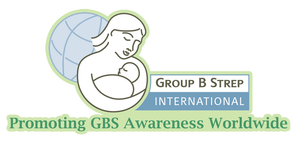
JAMES PATRICK WALSH JR - USA
Stillborn July 12, 2006
Prenatal-onset
Mother's GBS status: Tested positive
Gestational Age Harmed: Full term
Gestational Age at Delivery: Full term
Our lives changed forever that day. On July 12, 2006, we lost our precious son, baby James. My husband, my daughter, and I visited my doctor’s office for a routine, 38-week well visit. We were planning on having our then two-year old daughter listen to the new baby’s heartbeat for the first time. My pregnancy was relatively smooth, and I was feeling well overall. I did notice that I was having more frequent contractions with this pregnancy, but my doctors assured me all was well.
As my doctor ran the Doppler across my belly one too many times, I knew from the expression on her face that something was very wrong. I felt my stomach turn to knots as an ultrasound confirmed the worst – our beautiful baby’s heart had stopped. We had no idea why.
We immediately brought our daughter to her grandparent’s house and went to the hospital to be induced. I asked the doctor if it could be from GBS, since I had tested positive at my last visit. He said he didn’t think so, because I had no symptoms, fever, or other signs of infection. My membranes were still intact, and I wasn’t dilated. He ordered a blood and lung culture on the baby to rule it out anyway. After delivering our beautiful son and holding him for the first and last time, we returned home to break the news to our daughter, who was greatly anticipating the birth of her new brother or sister. The days and months since then have been a whirlwind of heartbreak for our family.
About two months after the delivery, the doctors called us in to discuss the autopsy results. The culture revealed that GBS was present in our son’s blood and lungs, and he died from sepsis due to GBS. We couldn’t believe that our little son’s life was cut so short because of this. It seemed impossible in this day and age.
My husband and I have since learned that GBS was present in my urine during my pregnancy, but I wasn’t treated at the time because my levels weren’t considered to be high enough. Of course I will always wonder what would have been, had we known more then and been more proactive. The doctors don’t know exactly how the bacteria made its way to our son, and I doubt they ever will. I do not blame my doctors. They followed the current recommendations of the CDC. They tested me at the appropriate time and were planning on IV antibiotics during labor. I don’t think they anticipated that something this terrible would happen.
I do feel the CDC needs to change its current guidelines. The medical community as a whole needs to become more aware and vigilant. More frequent GBS-specific urine tests with treatment if needed should be required for all pregnant women – not just for those who have lost children or had their children’s lives greatly affected due to this insidious disease. GBS needs to be taken seriously. We know too well how devastating its effects can be.
We never had the chance to hear our son cry, to see him smile, to hug or kiss him while he was alive. We will never teach him to read, watch him play ball, or take him to school. Our precious baby will live on forever in our hearts. We are so sad and forever changed. We just hope our story could somehow prevent this tragedy from happening to someone else in the future.
— Renee Walsh, NJ, USA
Stillborn July 12, 2006
Prenatal-onset
Mother's GBS status: Tested positive
Gestational Age Harmed: Full term
Gestational Age at Delivery: Full term
Our lives changed forever that day. On July 12, 2006, we lost our precious son, baby James. My husband, my daughter, and I visited my doctor’s office for a routine, 38-week well visit. We were planning on having our then two-year old daughter listen to the new baby’s heartbeat for the first time. My pregnancy was relatively smooth, and I was feeling well overall. I did notice that I was having more frequent contractions with this pregnancy, but my doctors assured me all was well.
As my doctor ran the Doppler across my belly one too many times, I knew from the expression on her face that something was very wrong. I felt my stomach turn to knots as an ultrasound confirmed the worst – our beautiful baby’s heart had stopped. We had no idea why.
We immediately brought our daughter to her grandparent’s house and went to the hospital to be induced. I asked the doctor if it could be from GBS, since I had tested positive at my last visit. He said he didn’t think so, because I had no symptoms, fever, or other signs of infection. My membranes were still intact, and I wasn’t dilated. He ordered a blood and lung culture on the baby to rule it out anyway. After delivering our beautiful son and holding him for the first and last time, we returned home to break the news to our daughter, who was greatly anticipating the birth of her new brother or sister. The days and months since then have been a whirlwind of heartbreak for our family.
About two months after the delivery, the doctors called us in to discuss the autopsy results. The culture revealed that GBS was present in our son’s blood and lungs, and he died from sepsis due to GBS. We couldn’t believe that our little son’s life was cut so short because of this. It seemed impossible in this day and age.
My husband and I have since learned that GBS was present in my urine during my pregnancy, but I wasn’t treated at the time because my levels weren’t considered to be high enough. Of course I will always wonder what would have been, had we known more then and been more proactive. The doctors don’t know exactly how the bacteria made its way to our son, and I doubt they ever will. I do not blame my doctors. They followed the current recommendations of the CDC. They tested me at the appropriate time and were planning on IV antibiotics during labor. I don’t think they anticipated that something this terrible would happen.
I do feel the CDC needs to change its current guidelines. The medical community as a whole needs to become more aware and vigilant. More frequent GBS-specific urine tests with treatment if needed should be required for all pregnant women – not just for those who have lost children or had their children’s lives greatly affected due to this insidious disease. GBS needs to be taken seriously. We know too well how devastating its effects can be.
We never had the chance to hear our son cry, to see him smile, to hug or kiss him while he was alive. We will never teach him to read, watch him play ball, or take him to school. Our precious baby will live on forever in our hearts. We are so sad and forever changed. We just hope our story could somehow prevent this tragedy from happening to someone else in the future.
— Renee Walsh, NJ, USA
To learn more about Perinatal & GBS Misconceptions, click HERE.
To learn more about the Signs & Symptoms of Preterm Labor, click HERE.
To learn more about the Signs & Symptoms of GBS Infection, click HERE.
To learn more about Why Membranes Should NOT Be Stripped, click HERE.
To learn more about How to Help Protect Your Baby from Group B Strep (GBS), click HERE.
To learn more about the Signs & Symptoms of Preterm Labor, click HERE.
To learn more about the Signs & Symptoms of GBS Infection, click HERE.
To learn more about Why Membranes Should NOT Be Stripped, click HERE.
To learn more about How to Help Protect Your Baby from Group B Strep (GBS), click HERE.
